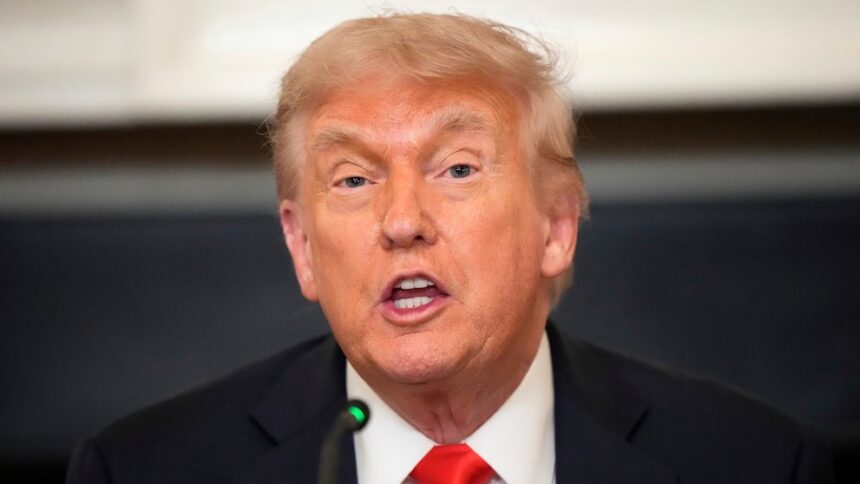United States President Donald Trump has signed a proclamation imposing a $100k annual fee on H-1B visas for skilled worker applicants.
It was gathered that a new $100k fee on H-1B visas will take effect from September 21, 2025.
Trump made this announcement during the official signing ceremony of the new policy at the White House on Friday.
The U.S. President declared that the policy is aimed at curbing what the administration calls widespread abuse of the system.
The new policy now requires companies to pay the hefty charge for each new H-1B petition.
“The company needs to decide… is the person valuable enough to have a $100,000-a-year payment to the government, or they should head home, and they should go hire an American,” he said, adding: “All of the big companies are on board.”
Also, White House officials emphasized that the measure targets only new applications, ensuring that only “truly extraordinary” talent justifies the expense.
“No more training foreign workers on the dime of American taxpayers,” Commerce Secretary Howard Lutnick declared during the signing ceremony in the Oval Office. “Companies must decide: Pay up for elite skills or hire Americans.”
Pan-Atlantic Kompass reports that since 2004, the number of H-1B applications has been capped at 85,000 per year.
Until now, H-1B visas have carried various administrative fees totalling around $1,500.
Also, a breakdown of official data from the U.S Citizenship and Immigration Services (USCIS) shows that applications for H-1B visas for the next fiscal year fell to about 359,000 – a four-year low.
The greatest beneficiary of the H-1B visa programme in the previous fiscal year was Amazon, followed by tech giants Tata, Microsoft, Meta, Apple, and Google, according to government statistics.
Speaking on the decision of Trump to impose a $100k fee on H-1B visas, Tahmina Watson, a founding attorney at Watson Immigration Law, asserted that the policy could be a “nail in the coffin” for many of her clients, who are mostly small businesses and start-ups.
“Almost everyone’s going to be priced out. This $100,000 as an entry point is going to have a devastating impact,” she added, noting that many small or medium-sized companies “will tell you they actually can’t find workers to do the job”.
“When employers sponsor foreign talent, more often than not, they’re doing that because they have not been able to fulfil those positions,” Ms Watson added.
Similarly, Jorge Lopez, the chair of the immigration and global mobility practice group at Littler Mendelson PC, said a $100,000 fee “will put the brakes on American competitiveness in the tech sector and all industries”.
Reacting to the development, Doug Rand, a senior official at U.S. Citizenship and Immigration Services during the Biden administration, described the proposed fee increase as “ludicrously lawless.”
Rand asserted: “This isn’t real policy — it’s fan service for immigration restrictionists. Trump gets his headlines, and inflicts a jolt of panic, and doesn’t care whether this survives first contact with the courts.”
Aaron Reichlin-Melnick, a senior fellow at the American Immigration Council, also described the development as “almost certainly illegal and likely to be struck down in court.”
“Congress has only authorized the government to set fees to recover the cost of adjudicating the application. There is no statutory authority to impose fees designed to limit the use of a visa,” Reichlin-Melnick wrote.“
Also giving his opinion on the matter, Xiao Wang, founder and CEO of Boundless, explained that the United States has built its leadership in technology and innovation by making itself the destination of choice for the world’s top talent.
He added: “Policies like this, alongside growing scrutiny of student visa applications, make it harder for bright, ambitious people to come here and put the United States’ standing as a global leader in innovation at risk.”
Stuart Anderson, executive director of the National Foundation for American Policy, a nonpartisan research group, said the plan could backfire if it incentivizes U.S. companies to shift jobs overseas, especially in specialized areas like research and development.
“The second impact will further decrease the number of international students who have an interest in coming to study in the U.S. If there’s no opportunity to work in the U.S., it’s much less likely they’ll enroll in U.S. programs,” Anderson stated.





